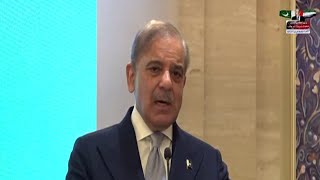HONG KONG: Hong Kong stocks plunged by more than six percent to a 13-year low Monday as investors were spooked by Chinese President Xi Jinping’s decision to hand key economic posts to loyalists who back his zero-Covid strategy.
The Hang Seng Index ended down 6.36 percent, or 1,030.43 points, to 15,180.69, its weakest level since 2009 during the global financial crisis.
The Shanghai Composite Index slipped 2.02 percent, or 61.37 points, to 2,977.56, while the Shenzhen Composite Index on China’s second exchange shed 1.76 percent, or 34.59 points, to 1,932.34.
Xi’s decision to pack his leadership with supporters as he tightens his grip on power suggests the government will not likely shift from its strategy of fighting Covid outbreaks with lockdowns and other strict measures.
The policy has been blamed for the sharp drop in growth in the world’s number-two economy and, while data showed Monday that it expanded more than forecast in the third quarter, traders remain on edge.
In a speech to close the Congress on Saturday, Xi insisted his zero-Covid policy had been a success.
And he promoted Li Qiang, the architect of a two-month lockdown in Shanghai that crippled the financial hub’s economy, to the second most powerful post in the Communist Party.
“The more centralised power becomes, the more the risk of overzealous policy implementation based on directives from the top,” Duncan Wrigley, at Pantheon Macroeconomics, said.
“This happened in some of the lockdowns in the second quarter.”
Tech firms were among the worst hit in the sell-off, having been hammered in recent years by Xi’s crackdown on the sector that has scythed firms’ profits and wiped billions off their valuations.
Hong Kong stocks finish with another loss
Market giants Alibaba, JD.com and Tencent were all down around double digits and the Hang Seng tech index was almost 10 percent down.
The sell-off cast a shadow over an otherwise bright start on other Asian markets, where traders were cheered by a rally on Wall Street following a report saying the Federal Reserve could ease up on its rate hike campaign.
“The Hong Kong market is seeing a panic selling moment,” said Dickie Wong at Kingston Securities.
“While China reported macro data that beat expectation, the market is on a way down, as the leadership reshuffle and tensions between China and US continue to drag down sentiment and adds uncertainty.”























Comments
Comments are closed.